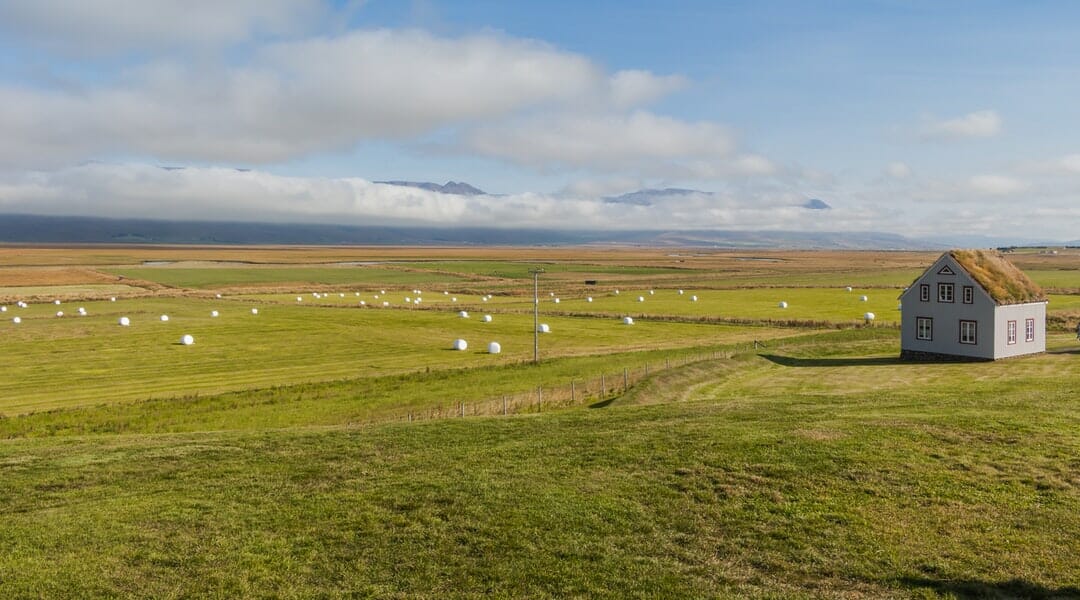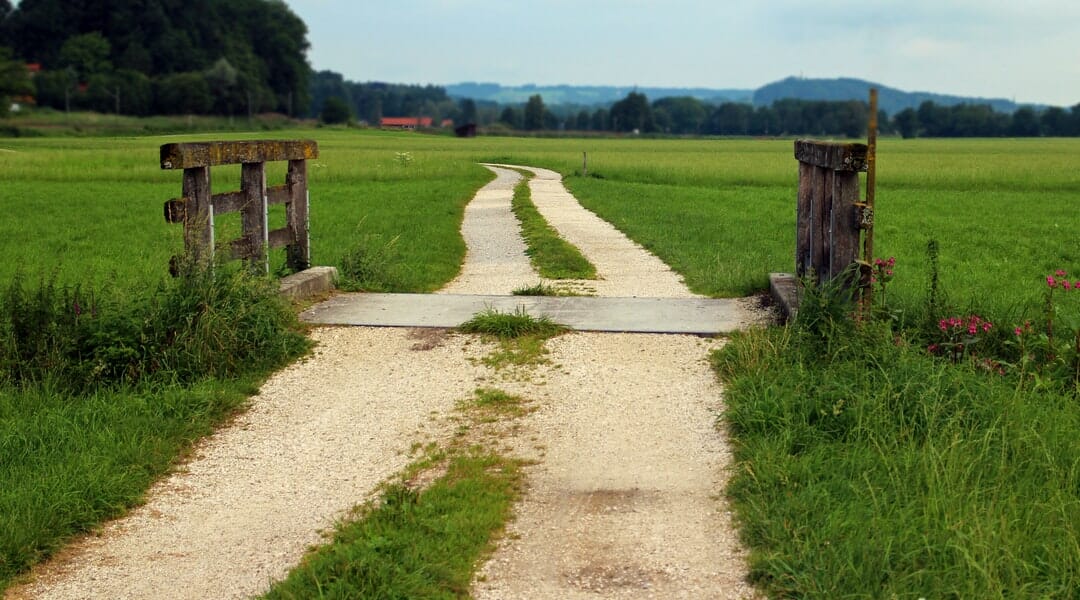The current state of the housing market and economy in the UK has created a new opportunity for property investors. Rather than buying property, many are turning their attention to buying land instead. And there are numerous benefits to doing so.
Buying land in the UK is a viable option for first-time buyers with self-building aspirations or those looking into acquiring land for development purposes as an alternative to investing in a traditional property. Buying land is a far more straightforward process than buying a ready-built property, and in many cases, it can be just as profitable.
That being said, if you’re unfamiliar with purchasing land in the UK, it’s easy to get confused or make a poor decision. So here are seven crucial questions to ask when buying land in the UK.
1. WHY DO YOU WANT TO PURCHASE LAND?
Before you even start looking for land to buy, it’s essential to consider why you want to purchase land and define your objectives. You might believe land is a better long-term investment choice for your circumstances and suits your portfolio better than stocks, shares or other assets. It might be that you have grand designs for a self-build project. Or perhaps you are looking to take advantage of the current UK housing shortage and buy/sell land for development for a profit.
These are all legitimate reasons to invest in land. By defining your objectives upfront, you will be better placed to understand what type of land you need, whether it’s greenfield sites that have never been built on or brownfield sites that have previously been built on as well as where you want to buy.
2. HAVE YOU RESEARCHED THE MARKET?
Before spending money on any land investment, you must thoroughly research it to ensure it is both viable and profitable. Research the current market and check out land for sale in your desired area. Depending on location and quality, you’ll find considerable variations in land values.
If you are buying land for development, you should consider the area’s future marketability. Land in the countryside might not generate the most profitable returns. You should also consider the local amenities and establish if the plot benefits from transport links. Where land is in a region earmarked for future growth, it could potentially increase in value as the area becomes more sought after.
This research will give you a good understanding of what is a reasonable price to pay for the type of land you want in the right location. We also recommend working with a local land agent who can offer advice and guidance throughout the purchasing process.

3. HAS A LAND SURVEYOR CHECKED THE LAND?
Before proceeding with any land purchase, it’s essential to get a land survey carried out. Similar to buying a house, there may be hidden problems that a surveyor could unearth and investigate. A professional service will establish any boundary and rights of way issues, ground contamination, and flood risks. These are all potential problems you want to know ahead of purchasing land. Whilst unlikely to be a complete deal-breaker, it’s vital to be aware of any issues from the start to avoid any expensive surprises in the future.
4. WHAT ARE THE ACCESS RIGHTS?
Looking into the current access rights of the land you intend to buy is important. Does the plot have good access to a public road? What access is there to the land for you, including vehicle access? Is there a public right of way that goes through your land that could affect how it is used?
Look out for ‘ransom strips,’ a small amount of land between your plot and the access point owned by the current landowner that they hold back and will not allow you access unless you pay extra.
You should also be wary of shared access or a public right of way across the land. In the event of shared access – such as a shared driveway – make sure there’s a legal agreement about how maintenance will be handled.

5. Does the land benefit from any existing planning permission?
The price of the land will usually reflect if it is being sold with planning permission already granted. If it is, make sure you take the time to understand the finer details of the permissions granted to make sure that it is suitable for your needs.
If you have your eye on a plot which ques does not yet have any permission granted, be sure to liaise with a land planning expert to make sure you can take into consideration the time and cost implications of pursuing planning permission. You also need to be prepared for the fact that it could be refused.
It is commonplace for prospective buyers to enter into a contract before planning permission is approved, with specific provisions included to ensure the completion of the land purchase is conditional upon satisfactory planning permission being granted for the plot.
6. IS THE LAND IN REGULATION?
Some plots of land are nothing more than that – simple land. But it makes more sense to buy land with a mains water connection on-site or a well. Drilling a borehole to get your own supply is undoubtedly an option, but it’s pricey and not all ground allows for it. The costs vary according to the location and geology of the site. Additionally, off-main sewerage costs will depend on the project’s scope and geology, so it’s important to understand what services are already supplied to the land before buying it.

7. WHY IS THE OWNER SELLING?
It is always worth looking into the reasons behind listing the land for sale. Perhaps the current owner is aware of some issue the agent is not disclosing? When purchasing land, you also want to be mindful of the neighbours. Find out if there are any ongoing property line disputes with neighbouring landowners or any existing tenant or lease obligations.
The time land has been sitting on the market is also important. A plot of land that has been listed for four weeks is a safer bet than one that has been on the market for four months. While there will always be exceptions, prospective buyers often ask this question to gauge the overall quality of the land.
Final thoughts
Just like when you buy bricks and mortar property, it’s important to ask some key questions about the land and other aspects before purchasing. We hope these questions give you a good idea of what to ask when you begin your search for the perfect plot.
The more information you can find out beforehand, the more questions you’ll have. Tailor the questions you ask to the land plot in question. If anything, in particular, strikes you as strange or unclear, there’s never any harm in asking someone about it. Be it the seller, neighbours or the agent who manages the sale. In addition to these essential questions that you should ask, you can do additional research before moving forward with the purchase.
Every piece of land is different, and the buying process depends on different locations, property uses and individual buyer and seller circumstances. You can use this as a general guide rather than an exhaustive outline when looking for land to buy in the UK. Always consult a qualified land professional to ensure you’re getting the correct information and advice. For more information on buying land in the UK, don’t forget to check out our definitive guide.


